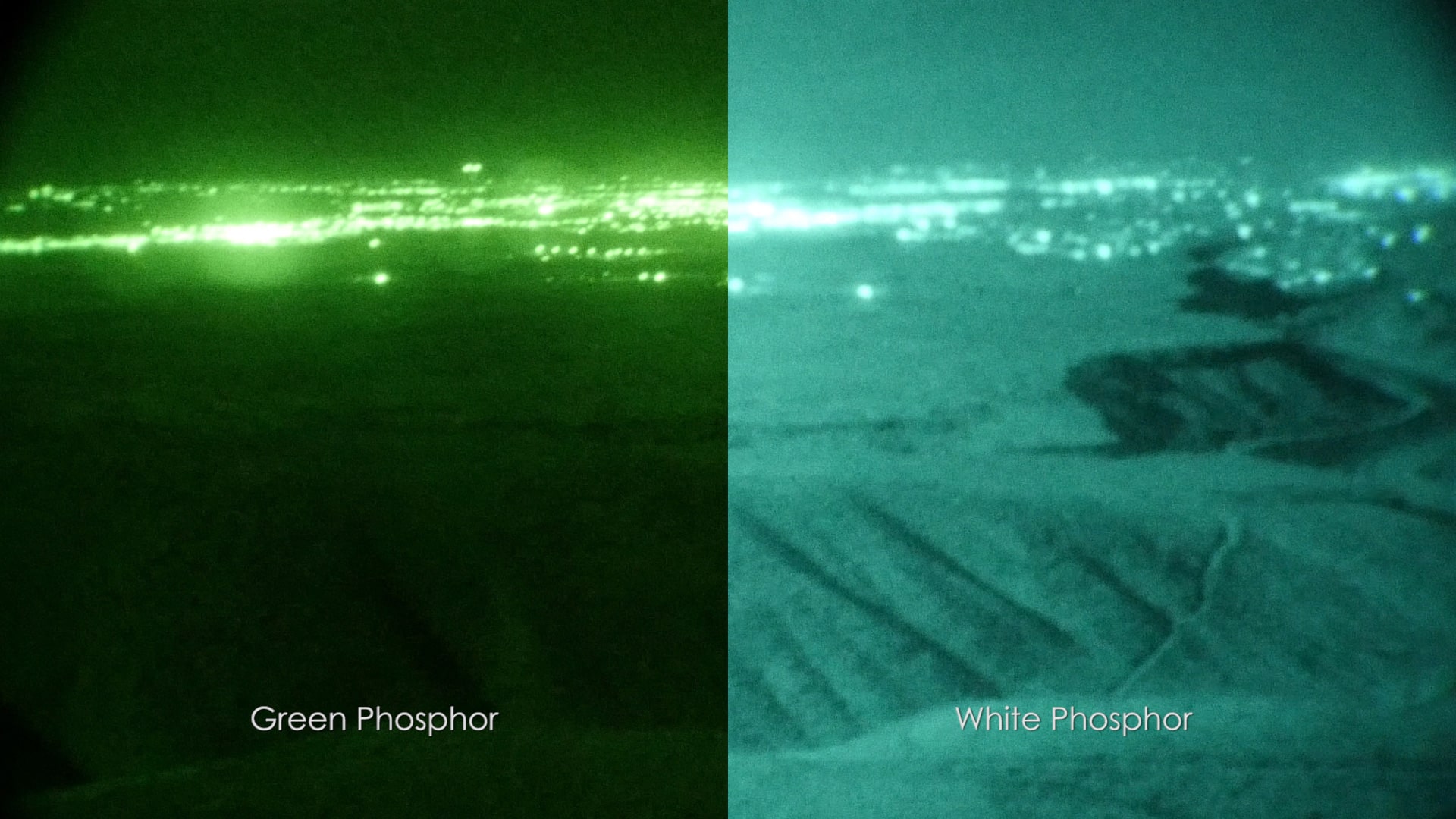
Night vision is the ability to see in low light conditions. There are two types of night vision devices, active and passive. Passive night vision uses available light whereas active night vision will emit its own source of infrared or ultraviolet light.
The process for both these technologies involves an image tube that converts photons into electrons. The electron then flows across the vacuum until it hits a microchannel plate detector which amplifies the signal creating a visible image on the screen.
How can you use night vision to see underwater?
Unfortunately, neither active nor passive night vision devices will work underwater. Water has a very high index of refraction and therefore light is bent in different directions when entering and leaving the water and can’t be focused on a receiver (like the microchannel plate).
What about NVD’s used for “Hydro Vision”?
Many companies market their night vision optics as being able to work underwater by using alternative technology such as an image intensifier tube with its own built-in illumination source (typically infrared), zoom lenses, fiber optic illuminators, or some type of passive enhancers like the glow that allow the user to see more detail within low levels of ambient light. These alternative technologies can create images in darker conditions than traditional night vision with green, blue, or yellow images. However, these alternative technologies do not give the user night vision and therefore will never be as good as true night vision optics.
Can you see more detail with better night vision equipment?
As we know our eyes work together to give us a clear image; we can’t focus on an object that is 3 meters away and one that is 30cm away at the same time without moving our head (or eye). A motionless head also tells us how stabilized an object is which indicates how far away it might be.
Understanding what your eyes are capable of has got nothing to do with a brand name or price tag but more about what they can actually resolve in any given light condition and this is where the value of high magnification comes in. The higher the magnification level (say 8x) the less depth of field the user will have, meaning they can see more detail up close but at a cost – it can be harder to interpret an image.
What about night vision goggles that you wear underwater?
Many people believe that night diving with goggles is perfectly legal around most parts of the world however this is not really true. Most regulators do not actually know what is meant by ‘diving at night’ so it would be best to ask them yourself before doing anything! Dive lights are now so bright these days that they could light up almost any night dive site underwater and some come with their own built-in strobe or white light for this very reason. This means that always using a set of night vision goggles will not give you an advantage over dive lights and in fact, could alert others to your position from a much greater distance.
Conclusion
So there we have it! The short answer is no, night vision does not work underwater however alternative technologies can be used underwater for greater definition of images over longer distances at the cost of depth of field. More importantly, if you are diving at night without permission or proper training then don’t do it! Night diving authorities believe it should only be practiced by those with sufficient skills who are aware of critical risks which include disorientation, poor visibility/water conditions, and potentially dangerous marine life amongst many other considerations.

